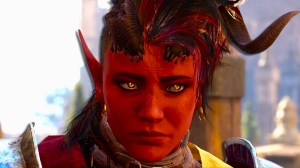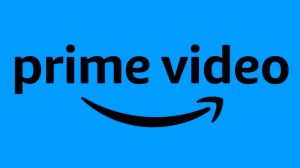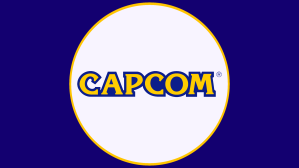There’s an old saying about Hollywood adaptations that says the movie is never as good as the book. Whether that’s accurate or part of our cultural preference for whatever version of a story we’re first exposed to is debatable, but it remains a widely-accepted truism.
Videos by ComicBook.com
As a longtime Marvel fan, there’s one notable exception to this rule that stands out: The Avengers. I’ve been a fan of the Marvel Universe for a long time, but I didn’t fall in love with the Avengers until I saw them on the big screen.
When I first discovered the Avengers as a kid, I was not impressed. The team seemed comprised of half-baked, shiftless characters working with a government mandate. I found the entire concept boring, like reading a comic about a team stuck in the superhero equivalent of a dead-end office job, and that first impression stuck with me for years. But then the Marvel Cinematic Universe happened, and in 2012, the cinematic versions of Earth’s Mightiest Heroes teamed up for the first time.
At that point, I was in.
The Avengers hit me in all the ways that Avengers comics never did. I found myself invested in characters I’d never thought twice about before, characters like Iron Man and Black Widow. For me, The Avengers movie was that rare piece of adaptive entertainment that improved upon on its source material.
After that poor first exposure to said source material, I spent years trying to figure out what it was about the Avengers that I was missing. I looked to classic stories like “The Kree-Skrull War” and Avengers Forever, but they left me cold. Something was missing.
Finally, it dawned on me. The Avengers, as a team, didn’t have a clear mission statement, unlike other stories that stayed with me. The X-Men were about fighting for a world that feared and hated them while Batman had his war on crime in Gotham City. Both often came into conflict with law enforcement and authority figures in pursuit of their loftier, nobler causes.
The Avengers were backed by the United States government or sponsored by the United Nations; they were the authority figures. Whereas the X-Men were fighting for something, the Avengers were reactionary, fighting against threats in defense of the status quo. In short, the X-Men were punk rock outlaws while the Avengers were duly deputized global hall monitors with government ID cards and matching bomber jackets. They were less heroic, and far lamer.
But the first Avengers movie changed that. Some of this is the result of buildup and planning paying off. I’d already seen five Marvel Studios movies focusing Iron Man, Captain America, Thor, and the Hulk. By the time The Avengers opened in 2012, I was already invested in the individual heroes in a way that I never was with the comics. With the Marvel Cinematic Universe, I was able to discover the characters at the beginning of their stories and experience their growth, building anticipation for when the team would assemble on the big screen for the first time.
Another reason the movie worked so well for me is writer/director Joss Whedon. Whedon’s run writing Astonishing X-Men for Marvel Comics turned me into a Wednesday regular at my local comic book store. Through that run, I discovered Buffy the Vampire Slayer, Angel, and Firefly. Whedon’s dialogue is distinct in a way that drives some people nuts, but I discovered his work during my formative years, and so I’ve internalized and accepted many of those tics others find bothersome. His works remain some of my favorite today.
Given that, I was thrilled to hear Whedon would direct The Avengers, and even more pleased to find that distinct voice carried throughout the blockbuster. Whedon’s talent for writing banter brought more life to the heroes on the screen than I ever got from them on a comic book page. Flipping the script on Bruce Banner’s relationship with the Hulk, Captain America’s speech in Germany, Black Widow being the biggest badass on a team of gods and super soldiers all rang true while making me consider the characters in new ways. He even added some of the danger that was missing from those early Avengers comics, having the team butt heads with SHIELD and then having Nick Fury, in turn, push back against the World Security Council. There’s a reason that circling shot of the original six Avengers assembling in New York City is still so iconic today. In addition to being a beautiful shot, Whedon and the other Marvel Cinematic Universe creatives earned that moment.
Experiencing the Avengers through the Marvel Cinematic Universe changed my relationship with them in the comics. The comics themselves have adapted to more closely resemble how the characters are portrayed in Marvel Cinematic Universe, but it’s also easier to invest in the mythology of these heroes and their cause than it was when I first engaged with them. They’re still not the rebel outcasts that the X-Men are, but they’re relatable and inspirational symbols of what we can be at our very best. We can innovate like Iron Man, or be as uncompromising as Captain America. We can overcome our inner demons like Bruce Banner or our pasts like Black Widow. And we can overcome challenges together that we’d fear to face alone.
The Avengers took a superteam that felt more like a day job than a calling and reimagined it as something more. The Avengers of the Marvel Cinematic Universe were made both more mythic and more relatable than they had been before. The film was epic, humanizing, and depicted the Avengers in a way that lived up to the idea that they are Earth’s Mightiest Heroes. That was enough to turn me into a true believer.

Welcome to Earth’s Mightiest Week! From April 22nd to April 26th, ComicBook.com is celebrating the culmination of the Marvel Cinematic Universe so far with a series of exclusive articles, lists, arguments, and more. If you’d like to check out some of our other offerings from this week, you can click the image above.








